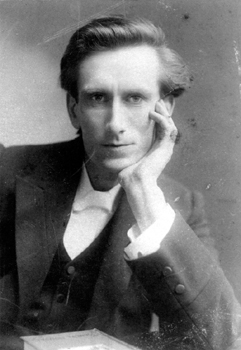Oswald Chambers set up his Bible Training College (BTC) in 1911.
He had two goals: training students in the Bible and how to apply the Bible‘s teachings to practical living.
His aims more than 100 years ago, ring similar to Bible schools today:
“The aim of the Bible Training College is to provide the training ground for workers who will “study” to become ‘workmen needing not to be ashamed.'”
I spoke with seven Bible school alumni about their experiences to better understand if Oswald Chambers’ BTC and goals remain just as valid now.
BTC students were headed to the mission field.
Several were sent by the boards for thorough preparation, some came for personal growth and spiritual development.
Others attended because they weren’t sure what they wanted to do with their lives.
Modern students attend for the same reason
Most of the former students I talked with voiced similar reasons for attending Bible school:
“I wanted to grow in my understanding of Jesus and the Bible.”
“My dad was paying for it and I had no idea what else to do.”
“I planned on being a missionary.”
“I thought I wanted to do church work.”
Their Bible schools and seminaries included Biola, Moody, Multnomah, Concordia, and several independent Bible schools in the US and Canada.

1914 BTC syllabus
Oswald taught most of the Bible courses at the BTC and his syllabus included Old Testament Subject Matter, Christian Doctrine, Biblical Ethics, Christian Habits and
Biblical Psychology.
He believed missionaries needed to have a firm grounding in the basic “guide to life” provided in close reading and comprehension of the Bible.
Bible College focuses today
Colleges studying Bible focus on the same things.
“Bible school gave me a good foundation both in terms of knowing the Bible and applying it in my life. From it, I came away with a good overview of the Bible historically and thematically.”
“I went to get some of my theological questions answered . . . I came away after three years . . . with far more answers that I started with but also with the understanding that answers aren’t everything and they aren’t what the Lord requires of us.”
“Bible College taught me the theological objective was to clearly explain what Scripture said.”
“I learned how to read the Bible and recognize false teaching.”
The BTC curriculum
The BTC prospectus pointed out
“the spiritual life must be allowed to take root, a firm root, before it is placed in the full blaze of intellectual criticism, and (on the other hand) the indefinite amiability of the times in which we live.
“While, therefore, the intellectual and practical duties are strenuous enough, our main object is the development of spiritual insight and calibre in the students.”
To that end, Oswald led a devotional class one afternoon a week in which he met with just the enrolled students (the other classes were open to the public).
In that class, he listened and talked with the students about issues on his heart and on theirs.
Oswald and his wife Biddy spent an inordinate amount of time getting to know and praying with the students who lived at the BTC. (24 at a time; 104 over the four and half years the school was open).
How to apply Biblical truth
The goal of both the BTC and those of the Bible school my interviewees attended was the same: to see the students apply the truth of Scripture to their lives.
It took more than just lecturing.
“What stuck and still sticks is the impact the teachers and students made on my life, my perspective, my relationship with God and with others . . . largely, their examples to me of what following Jesus looks like.”
“I appreciated the electives because they were smaller and had more student interaction. The instructor was a wonderful pastor whose love for God shone through everything he said.”
Like many BTC students, one modern woman gained insight and direction from Bible School:
“I gained a better understanding of the Word of God and direction in God’s calling on my life.”
Friends and relationships
Another alum remembers her Bible school with disappointment but recognizes some good from the relationships developed there, including finding a lifelong best friend.
“I took whatever class Dr. M taught because he alone saw the downward spiral that was my life . . . I found some profs who truly cared and sought to teach me what they know. Those lessons stayed.”
In addition to the classes Oswald taught, other course work at the BTC was surprisingly modern–if current schools just give the ideas a different name.
The BTC had courses in Christian Sociology, how to read your Bible, Sunday School Teaching, Bible Memory class, Greek and corporate prayers.
Examining the BTC curriculum and modern classes demonstrates a truth all Bible students well know: The word of God doesn’t return void. The Bible is a book for all ages. You cannot apply truth to your life if you do not know what it is.
Tweetables
Comparing modern Bible school curriculum with 100 years ago. Click to Tweet
Oswald Chambers’ 1914 Bible school; surprisingly modern. Click to Tweet
The same Bible classes in 1914 and today. Click to Tweet
Part I, Oswald Chambers and a Bible College Part I can be read here.




Thank you, Michelle for sharing this information.